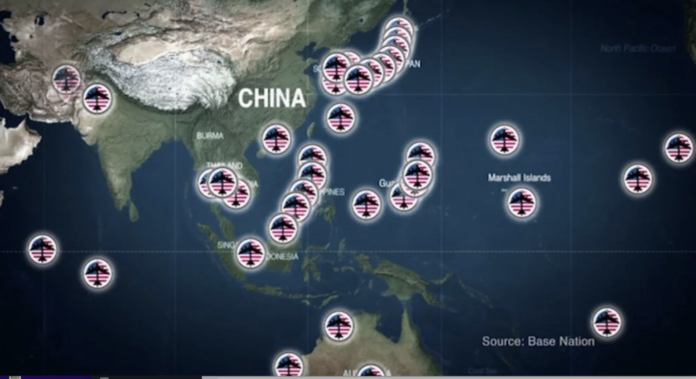Tribal fighting in Papua New Guinea’s Enga Province stretches police resources
Two weeks ago, this column discussed the Papua New Guinea Police Force’s plan to create an armed unit specifically to tackle inter-tribal fighting.
Last week, we saw why, as Papua New Guinean police and soldiers including the new anti-tribal war unit swamped Enga Province to stop a local conflict. The conflict started with the ambush and murder of five people at a funeral; and rapidly escalated into a large feud involving people from several tribes. The conflict involves a series of raids, attacks and counter attacks that have completely stretched local police resources. The situation is compounded by local access to firearms and ammunition.
Enga Province is in the remote and mountainous high lands of Papua New Guinea. The terrain is difficult and the area is approximately 600km from the capital, Port Moresby. Fighting is concentrated along the road between the province’s capital Wabag and the village where government forces have established their base of operations, Wapenamanda. A distance of about 30km that is marked in red on the map below.

Although, Enga Province has experienced almost continual fighting since the last election this round of fighting has been particularly deadly. The death toll includes a child killed by accident and five hired mercenaries, whose bodies were dragged behind a truck in a video posted on social media. The death toll is estimated to be about 60-70 people and mutilation of bodies has been reported. Houses in the area have been burned and people driven from their homes, forced to take refuge in other villages.
The situation demonstrates the difficulty that small nations with limited resources like Papua New Guinea can have trying to maintain the rule of law. Simply getting soldiers and police to Enga Province is difficult requiring a flight to Mount Hagen followed by driving for a couple of hours along rough roads. The remoteness and difficulty of getting to the region means that supporting a large government force is difficult. Even larger Pacific nations like Australia and New Zealand would be taxed supporting an operation in these conditions; and the Papua New Guinean military is much smaller than either of these forces and is very poorly trained and equipped.
An impact of the inability to guarantee the rule of law across the nation is an inherent lack of political stability. A situation that could be exploited by either state or non-state actors to create further instability for political or economic advantage. A stable and peaceful Melanesia contributes to a secure Pacific, so it is important that Papua New Guinea is supported by other nations to maintain the rule of law.
More trouble in Vanuatu – Speaker faces a ‘no confidence’ motion and complains to police about threats from political rivals
In recent weeks, Vanuatu has experienced plenty of political drama. Starting with a motion of ‘no confidence’ in the country’s then Prime Minister, Ishmael Kalsakau. The vote was contested and after an appeal to the Supreme Court Kalsakau’s government was thrown out. An election and the establishment of a new government followed.
This Wednesday, Vanuatu’s Speaker, Seoule Simeon faces his own motion of ‘no confidence’ and recently contacted the police to complain about threats and intimidation he alleges he has received from other politicians. Specifically, Simeon is concerned about new Prime Minister, Sato Kilman and his deputy Bob Loughman the people behind the recent ‘no confidence’ motions.
The use of political process like this demonstrates the relative instability of government in Vanuatu. A situation that combined with Vanuatu’s recent political shift towards China, and the presence of Chinese police on the island will be worrying Australia and the United States. Winning the confidence of Melanesian nations like Vanuatu is becoming a key issue for both nations, so we should expect to see more diplomatic initiatives from them soon.
China continues to harass Taiwan
Taiwan has officially protested about Chinese activity in the Taiwan Strait after it monitored 103 aircraft and nine ships active in the strait on 17 September.
Chinese military aircraft and ships are regular visitors to the area and during the previous week conducted very large exercises involving the aircraft carrier Shandong and several escorts. The exercises were monitored by Taiwan and by the Japanese navy. Official sources told Reuters that more than 20 Chinese warships transited the Bashi Channel and Miyako Strait into the Pacific last Wednesday. See the map below.

This activity is provocative; and is probably a response to recent United States activities in the area including Canadian and United States warships USS Ralph Johnson and HMCS Ottawa transiting the Taiwan Strait two weeks ago. Essentially, China is demonstrating that it has the capability to exert sea control beyond the South China Sea and can isolate Taiwan.
China has two aircraft carriers and both have exercised in the West Pacific over the last couple of years. However, defence analysts noted that the exercise involved the largest number of escorts observed supporting a Chinese carrier, to-date. Generally, a Chinese carrier group has an escort of four destroyers or frigates, so a task group of this size is unusual.
This activity is a ‘show of force,’ China demonstrating that it has the capability to deploy an aircraft carrier with a large escort. By doing this China shows that it can project force in the wider Pacific. A well-protected carrier supported by two dozen escorts, with a powerful airwing is a ‘big stick’ able to attack targets thousands of kilometres away from China. This exercise is designed to show that Taiwan, Okinawa or anywhere else can be isolated and attacked by Chinese sea and airpower. A ‘show of force’ is not a new idea, in previous centuries battleships were a large nation’s tool for force projection. Throughout history, colonial powers used ships to project power internationally, the term ‘gunboat diplomacy’ being coined to describe this activity.
However, China’s use of aircraft carriers is an interesting because recent American force projection in the region has centred on nuclear submarines rather than aircraft carriers. Three months ago, USS Michigan a cruise-missile armed nuclear submarine was sent to Korea. Its role, to deter potential conflict by being to make accurate long-range attacks on North Korean communications hubs, command centres, air defence systems and other valuable military sites. Carrying 154 Tomahawk cruise-missiles, USS Michigan provides powerful long-range fire from the safety of the depths. This deployment was followed a couple of weeks ago by USS Kentucky a nuclear powered but ICMB equipped submarine. A vessel sent to deter aggression by being able to launch very sudden nuclear attacks on North Korea, safe from cruise missile attacks; underwater.
It seems that the United States is aware of the vulnerability of its carrier task groups when they are within range of Chinese cruise-missiles. So is using submarines to project sea power, indicating the effectiveness of China’s area denial strategy that seeks to flood an area of ocean with so many precision-guided missiles that even a carrier task group’s defences can be overwhelmed.
China’s threatening carrier task groups look scary but are probably obsolete in any future conflict in the North-West Pacific. If they venture beyond the protection of China’s network of area denial missiles, they will be vulnerable to much more powerful and sophisticated American carrier task groups. And; are and expensive asset to have limited to operating within the range of China’s area denial missiles. However, they look impressive and threatening so probably provide the Chinese home audience with a patriotic lift and may intimidate voters in Taiwan; convincing them to elect more amenable leaders.
Ben Morgan is a bored Gen Xer and TDBs military blogger





The South China Sea says it all? The Map doesn’t say its the American Western Sea does it? That the US arrogantly thinks it can go wherever it wants around the Globe without pushback is hubris & ignorance on a epic scale, to think they can provoke & intimidate other Nuclear armed Nations by coming to other Countries Borders like they are trying to do in Russia & now antagonising China in their own Spheres of Influence & Territories, it’s outrageous! Can you imagine Russia or China sailing their Warships in the Gulf of Mexico or off the Coasts of Hawaii or California or setting up Military Bases in Canada, Mexico or Venezuela, look at the way they reacted over a Chinese Weather balloon that strayed into US airspace, they lost their minds & used a
Million dollar missile to shoot down a $100k balloon? How about putting nukes & missiles in Cuba, on no been there done that in the 1960’s, the US where going to initiate a Global Nuclear War over it! I believe the word the US needs to research & learn from is the word empathy, putting yourself in the shoes of the other Nation & having some understanding of their situation but that will never happen with a declining US Empire in it’s death throes?
Maybe the fact the Chinese Criminal Party has laid claim to the entire South China Sea might have something to do with increased US and regional nations naval activities. I am sure everyone has better things to do rather that counter more conniving commie aggression. The pack of thieves can give back Tibet and other countries they illegally annexed.
The weird logic of imperialists.
“The South China Sea says it all? The Map doesn’t say its the American Western Sea does it?” The 62nd Antforce Army troll
It doesn’t “say it all” at all. For instance, the Philippines and Vietnam might have something more to say about that weird piece of Chinese imperialist logic.
The Irish Sea, the English Channel, the Gulf of Mexico, the Indian Ocean, the Sea of Japan.
According to the weird logic of this troll, these are not international bodies of water at all, but the territorial waters of the countries they are named after. Who knew?
If the name of something “says it all”, then New Zealand belongs to Zeeland.
Because my piece of French Toast is called ‘French Toast’, doesn’t mean it belongs to France.
And your point Pat is that we are all internationalists? That we shouldn’t recognise locality or territory? Because we are all some universal proletarian mass as your mate Karl proposed?
Maybe you might consider the reality of culture, tradition, parochialism, religion, individualism. All those things dear Karl failed to properly consider.
Get off the grass Pat. Your support of American imperialists is obscene.
Сайты-мошенники и нечестные брокеры доставляют огромные проблемы многим пользователям интернета. Именно поэтому мы занимаемся проверкой сайтов на scam и брокеров на честность.
Мы проводим тщательные исследования для того, чтобы определить идут ли бизнесы законно и честно. Многие интернет-компании пытаются обмануть пользователями и украсть их личные данные и финансы. А ложные обещания о быстрой и выгодной прибыли большинство новичков просто манят в ловушку.
Мы оцениваем множество факторов при [url=https://scam.su/category/brokery/]проверке сайтов[/url] на scam, чтобы убедиться в их законности и защите данных. Анализируем проверки SSL, информацию о компании, отзывы клиентов и т.д.
В случае с брокерами мы проводим более детальную проверку. Мы изучаем брокерскую компанию, рекомендации клиентов, программное обеспечение и услуги. Только после того как убедимся в честности, мы можем рекомендовать пользователей к такому брокеру.
Также, мы объективно оцениваем каждого брокера на прозрачность, доступность и профессионализм. Нашей целью является убедиться в том, что люди имеют возможность выбрать лучшего брокера, который предложит доступные услуги, вполне подходящие для их целей.
Мы даем рекомендации о сервисах конкретным брокерам и помогаем пользователям выбрать наиболее подходящий вариант для их бизнеса. В итоге, наша главная задача – обеспечить защиту обычных пользователей и предотвратить мошеннические практики в интернете.